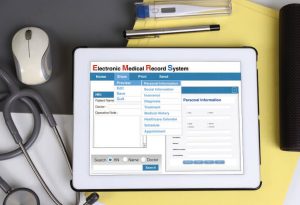Electronic Medical Records
Changing Medical Malpractice Litigation
by Jonathan H. Lomurro
This article was originally published in the June 2016 issue of New Jersey Lawyer magazine, a publication of the New Jersey State Bar Association, and is reprinted here with permission.

“By computerizing health records, we can avoid dangerous medical mistakes, reduce costs, and improve care.” – President George W. Bush, State of the Union Address (Jan. 20, 2004)
“We will make sure that every doctor’s office and hospital in this country is using cutting-edge technology and electronic medical records so that we can cut red tape, prevent medical mistakes, and help save billions of dollars each year.” – President Barack H. Obama, Radio Address (Dec. 6, 2008)
Something both major political parties agreed upon has led to disagreement in the field of medical malpractice. While the contentious discussions on mandatory competence in technology for lawyers echo in our ears, technological advances have taken place in the field of medical malpractice and, as a result, practitioners are being forced to deal with these advancements. A lawyer’s ability to adapt and accept will define his or her success; in litigation, ignorance is not bliss.
When the Health Information Technology for Economic and Clinical Health Act (HITECH), within the larger American Recovery and Reinvestment Act of 2009 (ARRA), and the Patient Protection and Affordable Care Act (PPACA) were placed into effect, the field of medical malpractice was destined to change. With the change, the scope of discovery in medical malpractice vastly expanded. The reason for the expansion was HITECH’s established goal for “utilization of a certified electronic health record [EHR] for each person in the United States by 2014.”1 In order to accomplish its goal, the government provided an electronic health records (EHR) incentive program for clinicians and hospitals that demonstrated meaningful use of electronic health records. With incentives and penalties driving conversion, almost all hospitals and most private practitioners have switched their practices over to electronically stored health records.
To read the full article click here.
